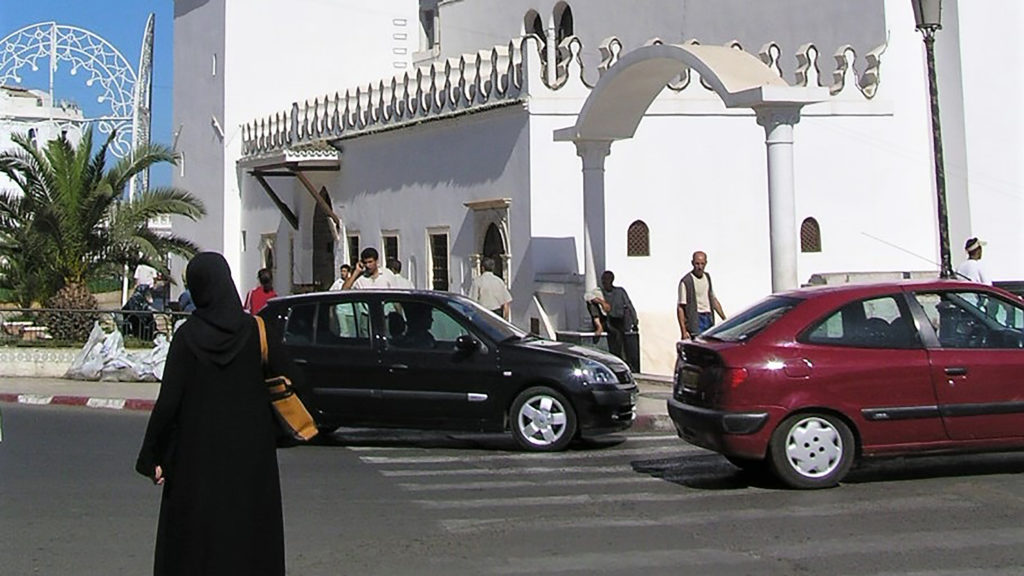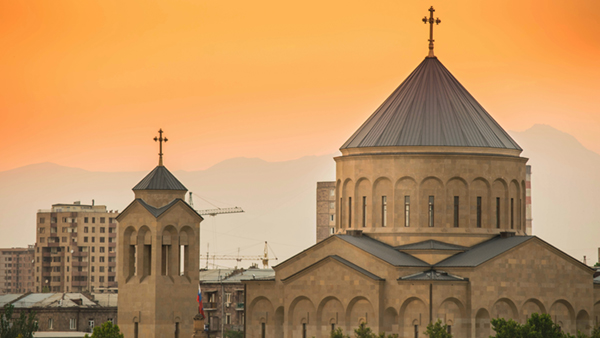An interfaith delegation of Jewish, Christian and Muslim leaders urged Secretary of State Colin Powell to make the Middle East peace process an immediate priority June 1.
The delegation of 33 religious leaders, members of the National Interreligious Leadership Initiative for Peace in the Middle East, said the United States needs to re-engage in the U.S.-backed “road map” to peace between Israelis and Palestinians in the region. “Our hope is that they (the administration) will take the road map and bring it back up again,” said Washington Cardinal Theodore McCarrick. “We believe the moment is now. We can’t wait.”
High price for peace
The road map calls for the creation of a Palestinian state by 2005. Both sides have formally accepted the proposal, but Israel has added 14 reservations.
The need for peace in the Middle East is urgent and cannot wait until after the November elections, the group said, citing violence that was responsible for the deaths of more than 20 Israelis and 90 Palestinians in May.
“The longer we wait, the more the peace will have to come on the backs of more Israelis and Palestinians,” said Rabbi Paul Menitoff, executive vice president of the Central Conference of American Rabbis, in a press conference. “There is a moral demand for action now.”
The interfaith leaders said that while they differ on some points regarding the conflict, they agree that the U.S. government should play a central role in the peace process.
The leaders reiterated their commitment to the 12 steps toward peace they outlined in December, and said the United States, Israel and the Palestinian Authority must act simultaneously if they want to achieve peace. They said groups should not wait for a cease-fire before taking the steps.
The leaders also renewed their call for the United States to send a presidential envoy to the region, but said they disagreed with Powell on the timing. “We agreed fundamentally on the principle and the importance of an envoy,” said Clifton Kirkpatrick, clerk of the Presbyterian Church. “The major difference is the question of when. He said the time may become ripe. We’re saying the time is now.”
They called on the United States to set a timetable for the steps Israel and the Palestinian Authority will take in implementing the road map, to create a “highly visible” monitoring system to ensure both sides comply, and increase security services and humanitarian aid for the Palestinians.
The leaders are affiliated with 22 national religious organizations, thousands of churches, mosques, synagogues and millions of constituents. They said a majority of their constituents supports the two-state solution proposed in the road map. As representatives of religious groups in the United States and in the Middle East, the leaders said they could offer “unprecedented” support for the peace process.





Share with others: